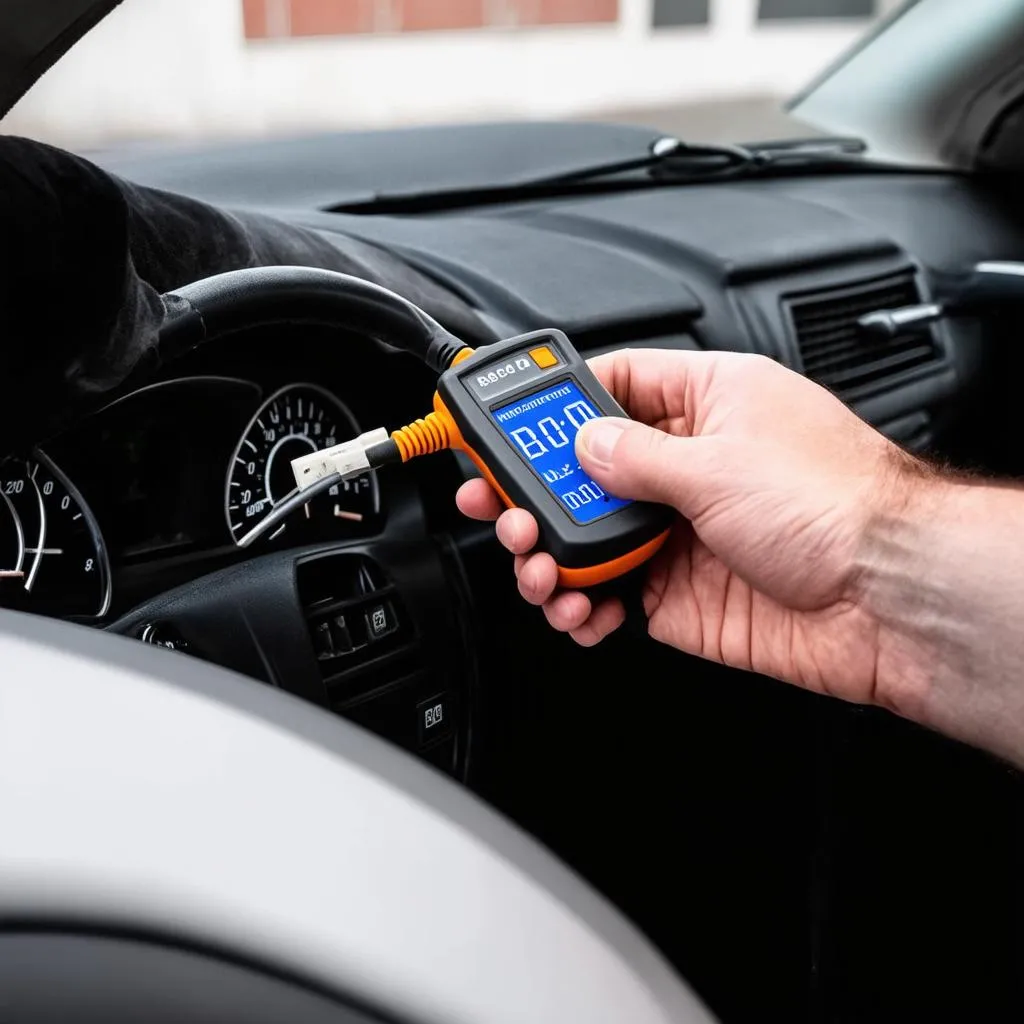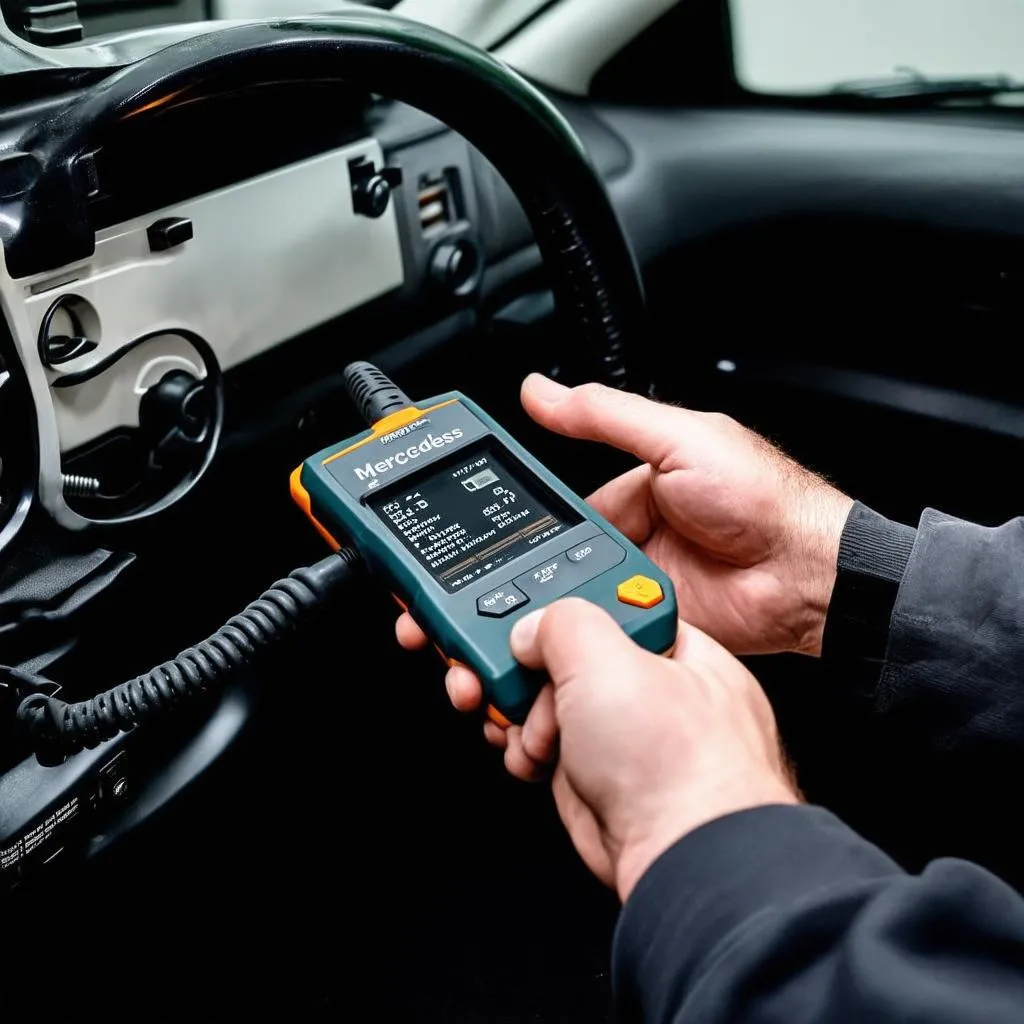The odometer, which displays a vehicle’s mileage, plays a crucial role in determining its value and maintenance needs. However, the unfortunate reality is that odometer tampering, specifically odometer rollback, is a persistent issue, especially in the used car market. While the term “rollback” might conjure images of dusty mechanical counters being wound backward, modern vehicles, particularly sophisticated ones like Mercedes-Benz, require specialized electronic tools for such manipulation. This article delves into the world of “Mercedes odometer rollback tools,” examining their functionality, implications, and the ethical considerations surrounding their use.
Understanding Odometer Rollback
Odometer rollback involves altering the displayed mileage of a vehicle to make it appear as though it has been driven less than it actually has. This practice is illegal in many jurisdictions due to its potential for defrauding buyers who rely on accurate mileage readings to assess a vehicle’s value, mechanical condition, and maintenance history.
“Odometer fraud is a serious offense,” states automotive electronics expert Dr. Emily Carter in her book, “Automotive Electronics and Instrumentation.” “It’s not just about misleading buyers; it also poses safety concerns, as inaccurate mileage readings can lead to missed maintenance schedules.”
The Mechanics of Mercedes Odometer Rollback Tools
Modern Mercedes vehicles store mileage data digitally in various electronic control units (ECUs) throughout the vehicle. These tools, often marketed under the guise of “mileage correction” or “odometer adjustment,” interface with these ECUs to modify the stored mileage data.
These tools typically connect to the vehicle’s onboard diagnostic port (OBD) and utilize specialized software to access and alter the relevant ECUs. The process often involves sophisticated programming and knowledge of the vehicle’s electronics to bypass security measures.
 Mercedes odometer correction tool
Mercedes odometer correction tool
The Legal and Ethical Implications
Using a Mercedes odometer rollback tool to misrepresent a vehicle’s mileage is illegal and unethical in most jurisdictions. The consequences of odometer fraud can be severe, ranging from hefty fines to imprisonment, depending on the severity of the offense and local laws.
Beyond legal ramifications, there are significant ethical considerations. Tampering with a vehicle’s odometer deceives potential buyers, putting their financial well-being and safety at risk.
“It’s crucial for buyers to be aware of the risks and to take steps to protect themselves,” advises automotive journalist Michael Thompson, author of “The Used Car Buyer’s Guide.” “Obtaining a vehicle history report from reputable sources is essential, and a pre-purchase inspection by a trusted mechanic can often reveal signs of odometer tampering.”
Legitimate Uses of Odometer Adjustment Tools
While the use of odometer rollback tools for fraudulent purposes is widely condemned, there are legitimate reasons for adjusting a vehicle’s odometer reading:
- Instrument cluster replacement: If a vehicle’s instrument cluster malfunctions and needs replacement, the new cluster will typically display zero mileage. An odometer adjustment tool is necessary to program the correct mileage into the new cluster.
- ECU replacement: Similar to cluster replacement, if an ECU that stores mileage data is replaced, the odometer reading needs to be corrected to reflect the vehicle’s actual mileage.
- Tire size changes: Significant deviations from the factory-specified tire size can affect the accuracy of the odometer reading. An adjustment tool can be used to calibrate the odometer to account for the new tire size.
It is crucial to emphasize that any odometer adjustment should be performed transparently and accurately documented to maintain the vehicle’s history and comply with legal requirements.
FAQs About Mercedes Odometer Rollback Tools
Can anyone use these tools?
These tools require specialized knowledge of automotive electronics and software. Attempting to use them without proper expertise can potentially damage the vehicle’s electrical system.
Are there ways to detect odometer rollback?
Yes, there are ways to detect potential odometer rollback. These include:
- Vehicle history reports: Reputable vehicle history reports can reveal inconsistencies in reported mileage.
- Physical inspection: A mechanic specializing in Mercedes-Benz vehicles can inspect the vehicle for signs of tampering, such as mismatched wear and tear or discrepancies in service records.
What are the alternatives to using rollback tools for legitimate adjustments?
For legitimate adjustments, it’s always recommended to consult with a qualified Mercedes-Benz dealership or a specialized automotive electronics technician. These professionals have the necessary expertise and equipment to make adjustments accurately and legally.
 Mechanic using professional diagnostic tool for Mercedes cars
Mechanic using professional diagnostic tool for Mercedes cars
Conclusion
While the allure of quick profits might tempt some to engage in odometer fraud, it’s essential to remember that this practice is illegal, unethical, and carries severe consequences. If you are in the market for a used Mercedes-Benz, be vigilant, do your research, and consult with trusted professionals to ensure you are making an informed and safe purchase.
Need help diagnosing your Mercedes or looking for reliable diagnostic equipment? Contact CARDIAGTECH for expert assistance and top-quality products.


